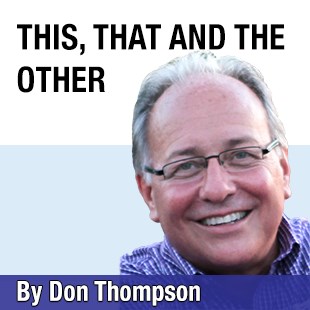
(DON THOMPSON / iNFOnews.ca)
October 30, 2023 - 12:00 PM
OPINION
In Canada, we have a right to know whether governmental decisions affecting us are made in our best interests. Indeed, we have not only the right, but the means to examine that decision-making. It is called transparency, and it’s a hallmark of democracy.
Those we elect - as well as those they appoint or hire - make thousands of decisions daily, some whose scope and costs are small, and some that are monumental in every aspect. In the great majority of cases, those who serve us do so with diligence and honesty.
As citizens, we rely on the openness and transparency of our government officials and do our best to keep abreast of their decisions…asking questions…and when necessary probing through rights like the Access to Information Act and Privacy Acts.
Three years ago, the Office of the Auditor General of B.C. conducted an audit of the province’s dams…releasing a report a year later that was highly critical…warning the province that it was not doing enough to make the region’s dams safe.
There were 87 high-risk dams with “significant deficiencies”…with one needing “immediate attention” and 24 others needing “considerable work” to make them safe. The owners were not taking actions to correct the deficiencies at those 25 dams.
Researching dams in Canada, I discovered why loose ends…on matters of risk and safety…and even the location of dams aren’t easy to determine.
The owners of the remaining 62 dams were taking actions to remedy the problems, according to the audit. The 87 dams had been categorized as “high-risk” for an average of seven-and-a-half years. Actually, there are more than 1,900 dams in B.C., and that’s an estimate because the government has lost count of earthen and other unauthorized dams often built by unknown parties. The audit three years ago turned up 196 dams that were unknown by the province.
The ownership, operation, maintenance and regulation of dams in Canada represent a crazy quilt of individuals, corporations, provincial and federal agencies, the nuclear industry and a volunteer association, among others. Canada, unlike most countries where a single database exists to track all necessary information about dams, doesn’t employ such a system.
It can be done…the database at Stanford University tracks data on all 191,000 dams in the United States. But that appears to be too big of a bite for Canada…there’s simply too many players…often with competing interests. Of course, the other side of any big job is like the answer to the old question…How do you eat an elephant? One bite at a time.
But even three years after the Office of the Auditor General’s audit…my request for names and locations of those 87 “high risk” dams to the provincial government…netted no response. I’m now filing a request through the Access to Information Act…and will keep you posted.
The failure of 1,000 dams overseen by the ministry “can kill people and damage the environment and property,” according to Auditor General Michael Pickup. Specifically, the results of failure for 43 dams would be “extreme,” while failure for 84 dams was called “very high,” according to the Auditor General’s report. In addition, the results of failure at 234 dams were characterized as “high”…and another 595 dams had “significant” consequences if they failed.
What does it take to make these failures happen? An earthquake for one. Excessive rain and snow that could stress and crack dams for another. I guess if you’re a gambler…you consider the odds and place your bets. But how reasonable is it to gamble with taxpayers’ money…not to mention lives?
The problems of inadequate dams across Canada seem large enough to capture the attention of people beyond the current crazy quilt of regulators, individual and corporate owners and associations. Maybe we should ask some questions, and demand answers?
— Don Thompson, an American awaiting Canadian citizenship, lives in Vernon and in Florida. In a career that spans more than 40 years, Don has been a working journalist, a speechwriter and the CEO of an advertising and public relations firm. A passionate and compassionate man, he loves the written word as much as fine dinners with great wines.
We welcome your comments and opinions on our stories but play nice. We won't censor or delete comments unless they contain off-topic statements or links, unnecessary vulgarity, false facts, spam or obviously fake profiles. If you have any concerns about what you see in comments, email the editor.
News from © iNFOnews, 2023